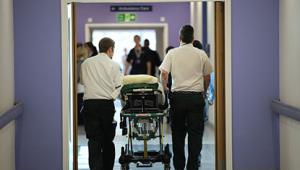20 October 2006
Up to 60% of deficit-hit NHS organisations have grounds to appeal against the tight time frames they have been given to cut services and recover their debts, according to the NHS Alliance.
This follows the Audit Commission's publication of its Auditors' Local Evaluation last week, which found that 110 of the 179 NHS and primary care trusts in deficit in 2005/06 had 'fair' or better financial management and provided 'fair' or better value for money.
The commission's judgement conflicts with earlier suggestions that organisations in deficit have been poorly managed rather than underfunded.
Together the 110 organisations represent a third, or £429m, of last year's gross NHS deficit of £1.3bn. Most have been given between one and two years to recover their deficits through plans agreed with their strategic health authorities.
But Mike Sobanja, chief executive of the NHS Alliance – which represents over 90% of PCTs – told PF many should now use their ALE scores to appeal against those plans.
'They should look at [the scores], challenge them where they are wrong and use them for negotiating purposes with SHAs about getting into balance,' he said.
The Department of Health has said it wants the NHS as a whole to break even by the end of this financial year and forecasts a net surplus of £250m in the year after that.
But Sobanja said this was leading to 'unrealistic' recovery plans that were forcing PCTs to make 'crazy' short-term decisions. 'Where the periods are too short you actually get nonsense things where people are disinvesting in services.'
He said that practice-based commissioning and public health initiatives with long payback periods, such as health lifestyles, tackling obesity and chronic heart disease, were most at risk.
Sixty of the 110 organisations concerned are NHS trusts, and some have told PF that their ALE scores corroborate their claims that they are under-funded, not badly managed.
Trusts whose income increases under the transition to the payment by results funding system are 'capped' and must pay back a proportion of their gain.
'We are one of the most capped trusts in the country on payment by results,' said David Moon, finance director of South Warwickshire General Hospital NHS Trust. In 2005/06 South Warwickshire gained £15.7m but had to give £13.2m back to the DoH – just under the size of the trust's deficit.
'If we got all of the tariff, we wouldn't be in deficit,' said Moon. The ALE would now form one more plank to the trust's lobbying of the DoH and local SHA for fairer funding, he said.
PFoct2006



















